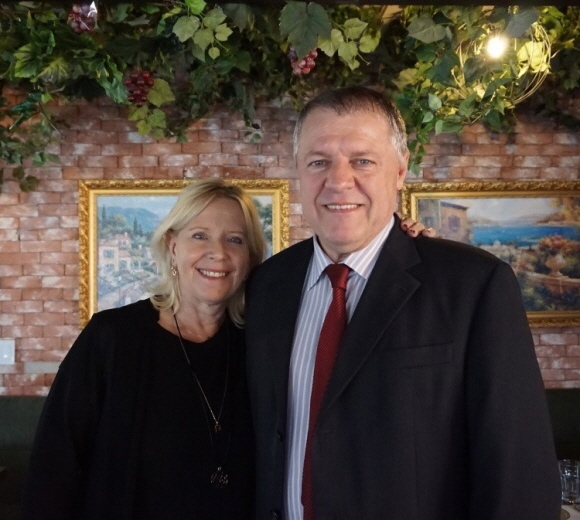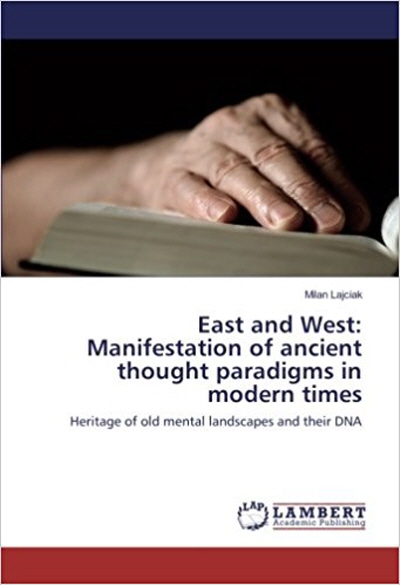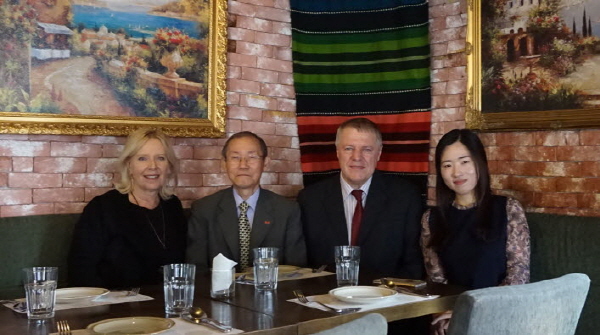Authored by Ambassador Lajciak of Slovakia in Seoul
For the first time in 32 years of operation, The Korea Post had the great luck today (Nov. 14, 2017) of meeting with an ‘author ambassador’ in Seoul. He was Ambassador Milan Lajciak of the Slovak Republic in Seoul.
Ambassador Lajciak has written a book entitled East and West: Manifestation of Ancient Thought Paradigms in Modern Times published by Lambert Academic Printing.
“After 23 years of my postings in East Asian countries,” said Ambassador Lajciak at a recent meeting with The Korea Post media, “I tried, in the end, to put my experience and knowledge about this region into a written form.”
He said, “The book entitled ‘East and West: Manifestation of Ancient Thought Paradigms in Modern Times’ with the subtitle ‘Heritage of Old Thinking Modes and Their DNA’ was published in August this year (English language).”

The book can be found on: Amazon.com:
https://www.amazon.com/s/ref=nb_sb_noss_2?url=search-alias%3Dstripbooks&field-keywords=milan+lajciak
Here are excerpts from an introduction given by Ambassador Lajciak:
The main purpose of the book is to highlight the basic framework of Western and East Asian thinking modes and thought patterns that were born in ancient times and that are very different between these two regions and in many aspects even contradicting. In ancient times in the West, the Greek civilization was representing the western thinking incubator, public debates were the cradle of a search for the truth and the argument was the main respected tool acknowledged by seekers.
It was not the respectful teacher but the argument itself that was valued, not the authority but the logic that was winning and not the limited framework but broad horizons of thinking avenues that were giving a flight to the western thoughts.
At the same time in ancient China, the Confucianism was born as the ethical system of governance of society that was in later period implanted into society, among others, through rigid system of exams. But in the East the Confucianism represented a canon, a kind of axiom that could be not challenged, the truth of all the truths forever. In this context, state exams were focused on interpretation of Confucian canon instead of challenging it and instead of looking for the truth beyond.

This had tremendous impact on further developing of thinking modes in the Western and the East Asian region where Confucian system has gradually penetrated. In the West, the critical thinking was flourishing to new domains including ontological questions going beyond the material world, on the other side in the East the critical thinking was subdued, developing in limited space of canons and focusing on nature and existing material world. The West has produced “truth-seekers” looking for the truth beyond our world, the East produced “way-seekers” looking for the harmony on our world. These thinking patterns were further developed by diversity of accompanying concepts that were in many aspects contradicting between the West and the East.
Different aspects of our thought patterns between the West and Confucian East are manifested in different ways of governance, social structures, economic models, ethical behavior as well as in foreign policy of modern times. The West has created the man who incorporated spiritual aspects of the life, the East produced the man oriented for ethical rules.
The book is structured into six chapters: 1) Confucian East and the West: different “geography of thinking” (How we look at the world from different angles, 2) East Asia: Confucian “wandering soul” and a birth of a new man (Confucian legacies in East Asian social-political dynamics), 3) East Asian economies and their philosophy behind success (Manifestations of social constructs in economic policies), 4) Overseas Chinese: how Chinese capitalism was born and how it has survived (Chinese migration and business specifications), 5) South Korea and its Business Culture (South Korean entrepreneurial mentality and attitudes), 6) China´s cultural fundamentals behind current foreign policy views (Heritage of old thinking habits in Chinese modern thoughts).
Two of these chapters are devoted to South Korea. Especially the second one is deeply analyzing the dynamics of the social-economic aspects of the country. The book is coming to the conclusion that South Korea has been undergoing the highest social dynamics in the region while showing the model of a new positive synergy of the Confucian heritage and the new Western trends. In other words, South Korea is, in social aspects, firmly bringing the birth of a “new East Asian man” who is still keeping some Confucian ethics but also absorbing western individual freedoms. And this is the way through which Korea is starting to distinguish in a growing way from her regional partners.


